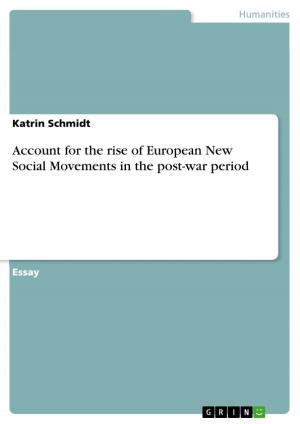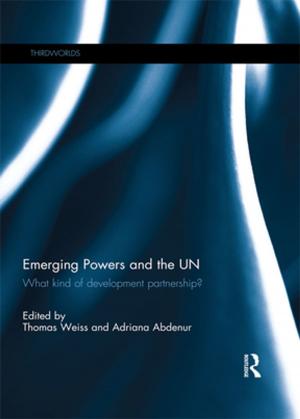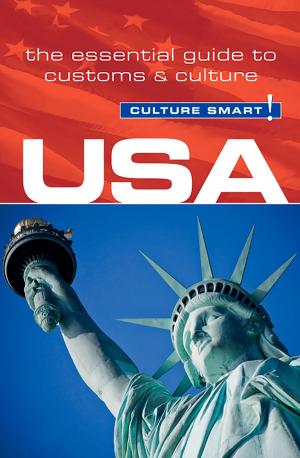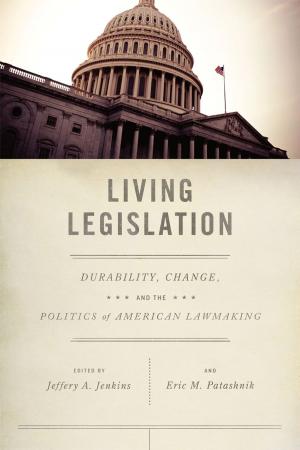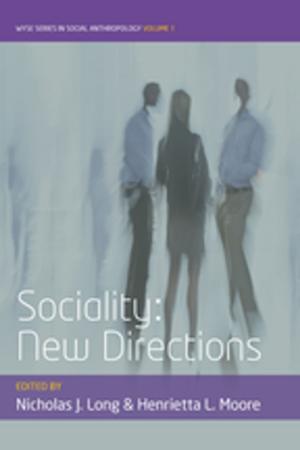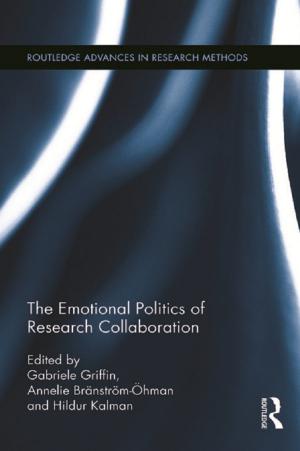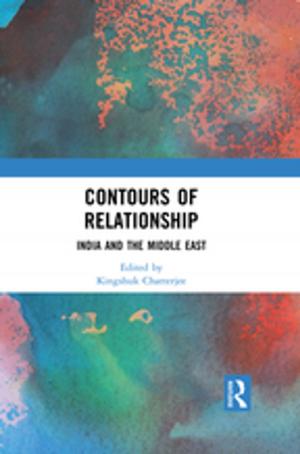States of Emergency: Anxiety, Panic, Nation
Nonfiction, Social & Cultural Studies, Political Science, International, International Security, Social Science| Author: | ISBN: | 9781442668799 | |
| Publisher: | University of Toronto Press, Journals Division | Publication: | April 1, 2012 |
| Imprint: | Language: | English |
| Author: | |
| ISBN: | 9781442668799 |
| Publisher: | University of Toronto Press, Journals Division |
| Publication: | April 1, 2012 |
| Imprint: | |
| Language: | English |
Although the events that have come to be known as 9/11 happened over a decade ago, lingering effects from the tragedy remain in the everyday life of the US and Canada today. This special volume explores these effects, investigating how 9/11 and its aftermath have changed political and cultural discourses in the US and beyond. "America now knows what it is like to be European," an ex-patriot friend of volume editor Bryce Traister remarked to him, echoing a sentiment many felt about America’s stupefied response to the very idea of the attacks having taken place. The acceptance that American soil can become a battlefield has prompted a security overhaul throughout the nation: airport security, border security, “security moms,” and an over-arching need for protection of the newly named “Homeland.” The authors in this issue explore these developments and aim to answer whether national anxiety has long been built into the American identity or if 9/11 has caused a complete cultural shift. In her essay, cultural critic Susan Knabe describes the emergency conditions of America and their impact on the "family values" through the example of Purity Balls, a growing practice within fundamentalist Christian communities in which a daughter pledges her virginity to her father, and Dateline NBC’s popular series To Catch a Predator. Gnabe takes on the explicit and implicit political deployment of enactments of childhood innocence and vulnerability as having developed in an effort to create a contrast between the accepted American family and the religious, social, and political ambitions of the 9/11 terrorists. The aftermath of 9/11 dominates international politics as well, from the "pre-emptive" military diplomacy of the Iraq invasion to new accords of worldwide international cooperation, to the spread of evangelical Christianity in Northern Africa as an apparently less militaristic way to "combat terror." Avidan Kent and Alexandra Harrington’s essay introduces many readers to the "necessity doctrine," which allows, under certain conditions, a state to breach its international obligations in order to cope with the crisis it faces. In recent years, the necessity doctrine has been the center of several international investment law cases; the non-uniform application of the doctrine has been criticized by academics and practitioners alike. Although 9/11 brought the United States into focus, the nation’s issues have, once again, become the world’s issues. The concept of a “national state of emergency” is not a new one; it has held a starring role since America’s inception as nation, as the Declaration of Independence announced that a state of emergency was in effect on account of King George's manifest failure to protect his colonial subjects from the horrors of a politico-legal state of nature. But the document can also be read to announce the end of a particular way of thinking about the relationship between sovereignty and emergency. Paul Downes’ essay aims to investigate these ideas in his philosophical approach to determine how long political anxiety has been a part of the American cultural identity. The articles within this volume explore the notion that 9/11 as having introduced an exceptional state of affairs into American life is, itself, an exceptional claim: it expresses a desire to normalize the nation by describing its current "emergency" as an interruption to what should be the normal state of national affairs. Such exceptionalism is part and parcel of the national mythology itself, a tendency on the part of Americans to describe their nation as unique among all other nations. The reader is left wondering, is this newfound state of emergency what makes contemporary American exceptional? This special volume will challenge, provoke, and enlighten your current notions of American culture through its exploration of domestic political history and current international affairs.
Although the events that have come to be known as 9/11 happened over a decade ago, lingering effects from the tragedy remain in the everyday life of the US and Canada today. This special volume explores these effects, investigating how 9/11 and its aftermath have changed political and cultural discourses in the US and beyond. "America now knows what it is like to be European," an ex-patriot friend of volume editor Bryce Traister remarked to him, echoing a sentiment many felt about America’s stupefied response to the very idea of the attacks having taken place. The acceptance that American soil can become a battlefield has prompted a security overhaul throughout the nation: airport security, border security, “security moms,” and an over-arching need for protection of the newly named “Homeland.” The authors in this issue explore these developments and aim to answer whether national anxiety has long been built into the American identity or if 9/11 has caused a complete cultural shift. In her essay, cultural critic Susan Knabe describes the emergency conditions of America and their impact on the "family values" through the example of Purity Balls, a growing practice within fundamentalist Christian communities in which a daughter pledges her virginity to her father, and Dateline NBC’s popular series To Catch a Predator. Gnabe takes on the explicit and implicit political deployment of enactments of childhood innocence and vulnerability as having developed in an effort to create a contrast between the accepted American family and the religious, social, and political ambitions of the 9/11 terrorists. The aftermath of 9/11 dominates international politics as well, from the "pre-emptive" military diplomacy of the Iraq invasion to new accords of worldwide international cooperation, to the spread of evangelical Christianity in Northern Africa as an apparently less militaristic way to "combat terror." Avidan Kent and Alexandra Harrington’s essay introduces many readers to the "necessity doctrine," which allows, under certain conditions, a state to breach its international obligations in order to cope with the crisis it faces. In recent years, the necessity doctrine has been the center of several international investment law cases; the non-uniform application of the doctrine has been criticized by academics and practitioners alike. Although 9/11 brought the United States into focus, the nation’s issues have, once again, become the world’s issues. The concept of a “national state of emergency” is not a new one; it has held a starring role since America’s inception as nation, as the Declaration of Independence announced that a state of emergency was in effect on account of King George's manifest failure to protect his colonial subjects from the horrors of a politico-legal state of nature. But the document can also be read to announce the end of a particular way of thinking about the relationship between sovereignty and emergency. Paul Downes’ essay aims to investigate these ideas in his philosophical approach to determine how long political anxiety has been a part of the American cultural identity. The articles within this volume explore the notion that 9/11 as having introduced an exceptional state of affairs into American life is, itself, an exceptional claim: it expresses a desire to normalize the nation by describing its current "emergency" as an interruption to what should be the normal state of national affairs. Such exceptionalism is part and parcel of the national mythology itself, a tendency on the part of Americans to describe their nation as unique among all other nations. The reader is left wondering, is this newfound state of emergency what makes contemporary American exceptional? This special volume will challenge, provoke, and enlighten your current notions of American culture through its exploration of domestic political history and current international affairs.







